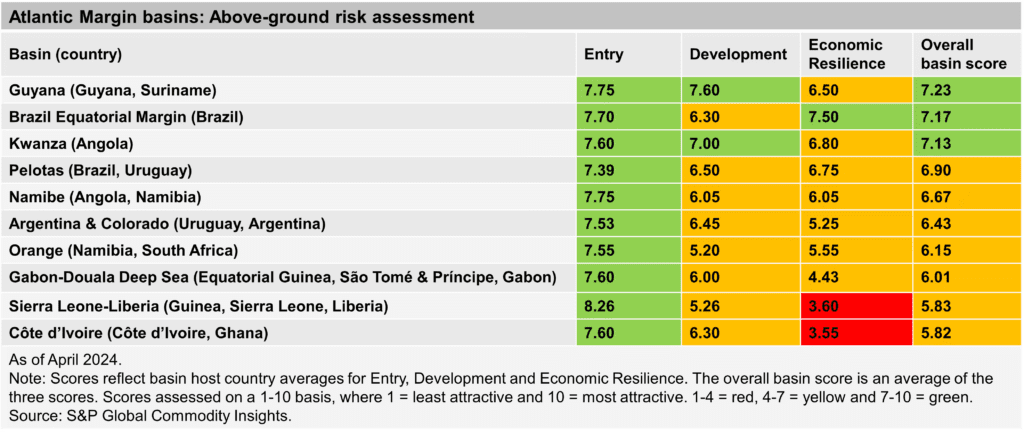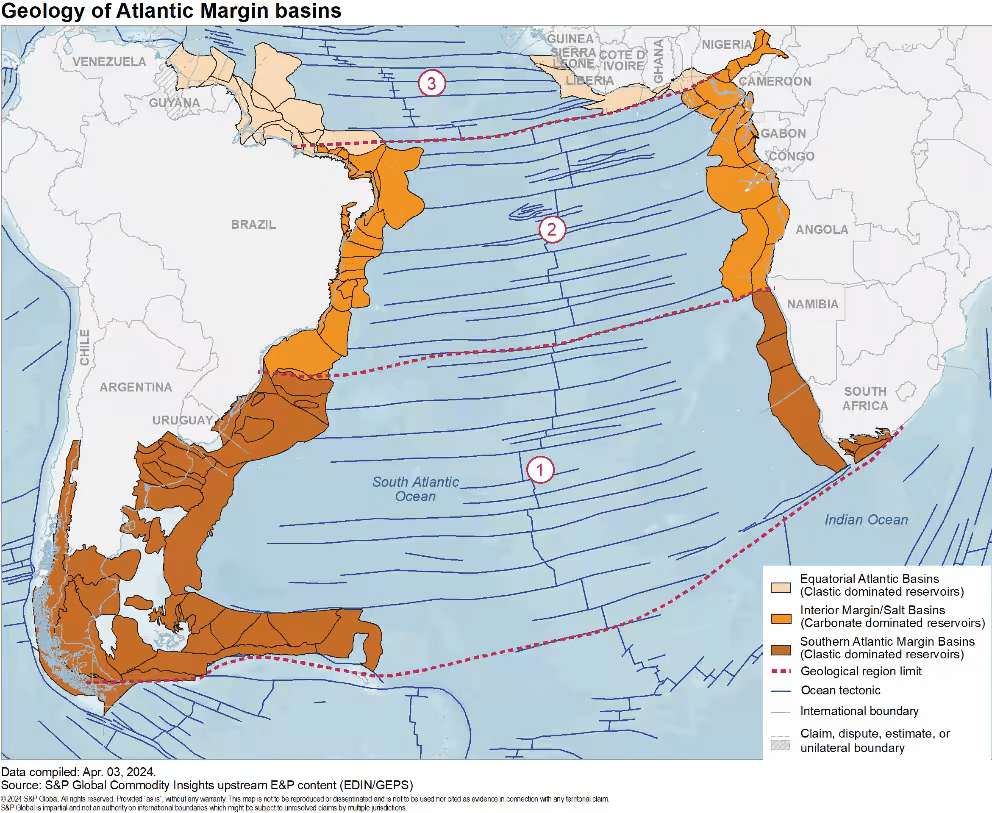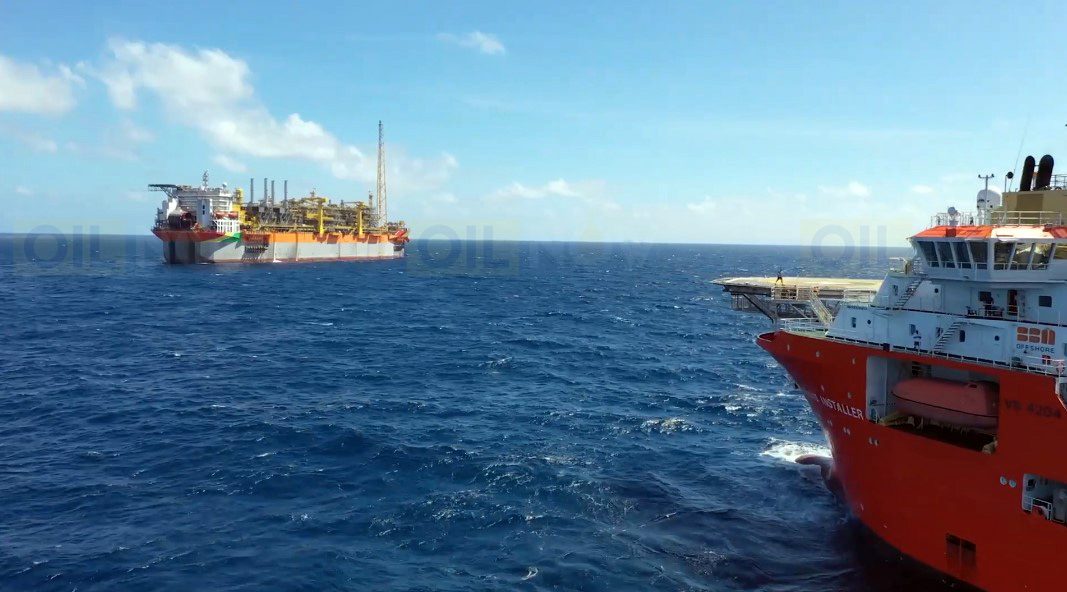S&P Global analysts have placed Guyana at the top of a list of 10 Atlantic Margin basins, in its assessment of which countries offer a conducive investment environment for long-term upstream projects.
The firm noted that recent discoveries by international oil companies (IOC) in Guyana and Namibia stand out, making the Atlantic Margin one of the most active areas for exploration and production globally.

S&P considered the Guyana Basin as inclusive of Guyana and Suriname. However, Guyana was noted as being ahead of Suriname in the management of its oil sector.
Namibia urged to emulate Guyana’s investor-friendly posture | OilNOW
“In the next five years, Namibia (Orange Sub-basin) and Suriname (Guyana Basin) are well positioned to join Guyana as important sources of new production volumes, with their respective governments following Guyana’s lead in taking steps to avoid many of the pitfalls that have historically plagued petrostates around the globe,” S&P stated.
The basins were rated in three categories: Entry, Development and Economic Resilience. Following in second and third places were Brazil’s Equatorial Margin and Angola’s Kwanza Basin. The Côte d’Ivoire Basin and Sierra Leone-Liberia Basins were deemed the riskiest. The riskiest basins include the exclusive economic zones of Guinea, Sierra Leone, Liberia, Côte d’Ivoire, and Ghana.

IOC’s leaving mature African basins for ‘frontiers like Namibia and Guyana’ – S&P | OilNOW
In addition to the geology of these basins, S&P sees the management styles employed by the countries as also being attractive. “The Atlantic Margin’s openness to foreign investors sets it apart from other prolific basins globally, and the margin’s E&P hotspots boast the large reserve bases, lighter crude grades and favorable fiscal terms that will secure IOC interest and activity and make the region a key source of future supply,” it said.
Exploration interest continues to favor the jurisdictions of the Atlantic Margin. S&P said that in 2024, 20 of the 39 global high-impact wells targeting prospects of at least 250 million barrels of oil-equivalent are located on the margin.



